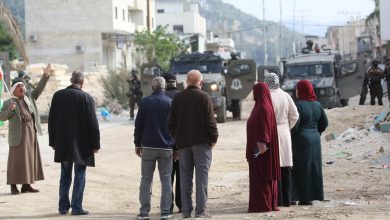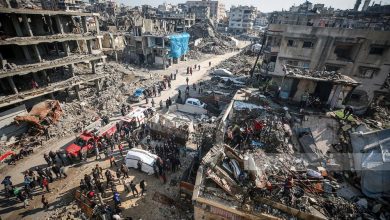In a recent report published by the Israeli economic newspaper “Globes,” the significance of the Gaza Strip’s lands for Israel’s food security has been emphasized. According to Ami Yifrach, the head of the Farmers’ Union, a staggering 75% of vegetables consumed in Israel originate from the Gaza Strip, along with 20% of fruit and 6.5% of milk.
The region surrounding Gaza, often referred to as the “Israeli Vegetable Patch,” also houses farms for poultry, livestock, and fish. However, since October 7 of this year, this area has come under attack from Palestinian resistance groups in response to Israeli aggressions, which have significantly jeopardized Israel’s food security.
Israel has imposed strict restrictions on these lands within Gaza for decades, preventing Palestinian farmers from utilizing their own territories. Furthermore, these areas have been subjected to Israeli airstrikes in every military operation against the Gaza Strip.
Yifrach, the head of the Israeli Farmers’ Union, stated, “We’ve evacuated most of the Thai workers from the border region.”
Yaron Solomon, the head of the Economic Division of the Farmers’ Union, revealed that the current situation means there are products, but it’s impossible to access the fields, and the army won’t allow entry.
On the other hand, the Ministry of Agriculture has pledged full support for the farmers within the Gaza Strip, allocating 2.5 million shekels (625,000 dollars) to assist them.
“Globes” reported that farmers in the Gaza border settlements are disappointed with unfulfilled promises from the Ministry of Agriculture. They were previously promised 770 million shekels as part of import tax relief but have yet to receive it.
Last week, the government decided to import 10 million liters of milk monthly, equivalent to 33% of the milk market in Israel, for three months. Additionally, 50 million eggs are also slated for import, as reported by “Globes.”
The Importance of the Gaza Strip
Following the withdrawal from the Gaza Strip in 2005, successive Israeli governments have attached special importance to the Gaza border region, bolstering it with numerous settlements.
Tel Aviv has solidified its control over the Gaza Strip for strategic purposes, considering it a buffer zone along the land border with the territory. This is to cut off geographical connections between the Gaza Strip and the West Bank, thwarting any prospects for the establishment of a Palestinian state.
As of today, the Israeli military continues its intensive bombardment of this besieged area, resulting in more than 2,800 casualties, the majority of whom are children and women. Simultaneously, Palestinian resistance groups target Israeli cities and towns as part of Operation “Aqsa Tempest.”



